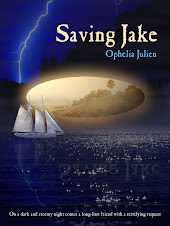I have attended all
sorts of classes related to writing. I’ve gone to workshops on how to get
published. I’ve sat through panels about marketing. Heck, I’ve taught a few
sessions in my time—classes about writing a novel, classes about writing a paranormal
novel, even a recent one about self-publishing. But in all my years of
listening to writers, reading about the publishing industry, seeking out tips
on how to improve my craft, I have never found the secret to the one thing I
wish I could master: how to speed up my own process.
Yesterday, I made a
belated announcement that 2019 would not see the release of a new Bridgeton
Park Cemetery book. I held off on putting that statement out into the world
because I was still hoping, very unrealistically as it turns out, that I could
still pull a completed novel out of my hat before we reached 2020. Not
happening.
Part of the problem
has been a change in my schedule. I’ve lost twenty hours of free time a week,
which may not sound like much but is actually a complete game changer. It’s not
just the writing time that’s missing for me; I’m also missing time to do
everything around the house that needs doing. So if my housework/chore/daily
upkeep time is crunched, my writing time is even more so. And not only that,
changing hats from my daily job to my particular world of fiction isn’t always
that easy a transition. If only I were just changing hats. But it’s actually a
matter of changing my mindset, and it’s not always so easy to switch gears from
what’s going on at the office to what’s going on with Cassie and Michael.
I’m also dealing with
a chronic health issue that’s been going on for a year, now, and maybe I’m
getting close to resolving it, but I won’t know that for sure for another
couple of months, or so. Sigh.
Writing this to
depress any of you is not my goal. It’s basically me just mulling over what
happened during the last part of 2019 and realizing why the book didn’t get
finished, even though I’m nearly halfway through it. At least, I hope I am.
So I really wish that
I could find a way to speed up my writing process. I’ve never been very fast at
putting a novel down on paper. I think it’s because for most of my life, I was
always writing around an imposed schedule: the amount of time when I could sit
down and write out a novel-length story was limited and only available to me in
fits and starts. The past few years, I got lucky and had a great deal of free
time to work on my stories. But things have changed back to the way they used
to be and now I’m scrambling to re-learn how to write in fits and starts, if
that’s all the time I’ve got.
Some people just work
more quickly than I do. I sooo envy Stephen King his speed. I know he has the
discipline to sit down at his keyboard every single day and write, so maybe I’m
actually envying his discipline. But even if I had that discipline, and believe
me, there was a time there that I did, I can’t produce an encyclopedia-length
tome in less than a year, or maybe more like a matter of months, the way he
does it. Maybe not many writers can. Still, the writers I read seem to be able
to put out at least one or two books per year, every year. I did that just once,
in 2017, when I released both These
Living Eyes and Touching Shadow,
Stealing Light in the same year. Truth be told, my brain went fallow after that
second book came out, and it took some doing to get myself back together enough
to produce She Weeps. So maybe I’m
really not wired to work that quickly.
Reading a novel
should take the reader on a journey. I find it interesting, and possibly just a
smidge ironic, that writing a novel, any novel, also takes me on a journey. I
don’t mind. I just wish sometimes on my journey that I had 1) an actual map and
2) a much, much speedier process.





